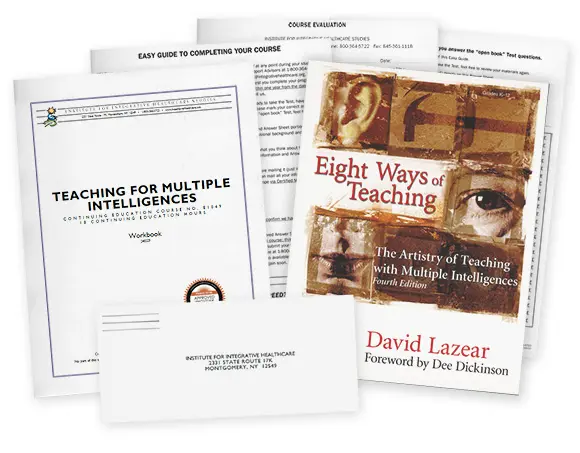
This course introduces teaching practices for 8 forms of multiple intelligences. These include; verbal, mathematical, visual, kinesthetic, rhythmic, interpersonal, intrapersonal and naturalist. It provides insight into the diversity of learning and includes many clearly-designed examples of multiply-intelligent ways to design learning experiences. While the textbook was written for teaching children K-12, the concepts and strategies are clearly applicable to all forms of communication.
This course details:
For those massage therapists interested in offering massage classes, teaching at a massage school or public speaking - these techniques will help you understand how people learn in different ways. Also helpful for gaining strategies to instruct a client when in exercise or stretch 'homework'.
Antonia C. Nelson, LMT, BCTMB
1/15/2025
Katherine Langston, LMT
10/26/2023
Kimberly Roubo, LMT
10/7/2023
Louisa Scoville, LMT
4/1/2023
Ann Ross, LMT, BCTMB
12/26/2022

Sharon Burch holds a Masters Degree in Nursing and has been practicing as a nurse since 1974. She is currently a Registered Nurse in the state of Arkansas. Additionally, Ms. Burch studied under many of today's leaders in massage therapy and bodywork during the 1980s, became Nationally Certified through the NCBTMB in 1993 and holds a professional membership with the AMTA.
As founder of Health Positive!, Ms. Burch has created over 60 home study nursing and massage continuing education programs, performed over 65 public, live educational presentations, has written two published books, served as a member on the NCBTMB Continuing Education committee and was a founding member of the National Association of Nurse Massage Therapists.
Sharon is an instructor on many of the Institute's programs and has authored and co-authored various ethics courses and additional titles such as Touch for the Seriously Ill, Stress Reduction Through Bodywork, Staying Well – Naturally, Cardiopulmonary Health and Illness, Chronic Pain Management, Marketing Massage in Four Easy Steps, Preventing Medical Errors, HIV Update for Massage Therapists and Bodyworkers, Understanding HIV, Massage for Edema and more.


Take our free online course: Ethics Refresher
We will not rent/sell your email to anyone.
You'll also receive our newsletter and special offers.
Thank you! An email will be sent to the address provided with instructions on how to enroll in this 1 CE hour course - FREE!
If you do not see our email within a few minutes of signing up, please check your Spam/Junk folders it may have been delivered there instead of your inbox.
If, by chance, you still have not received it within 5 minutes, please call us at 1-800-364-5722, Monday-Friday, between 9am-12:30pm and 1:30pm-5pm EST for assistance.